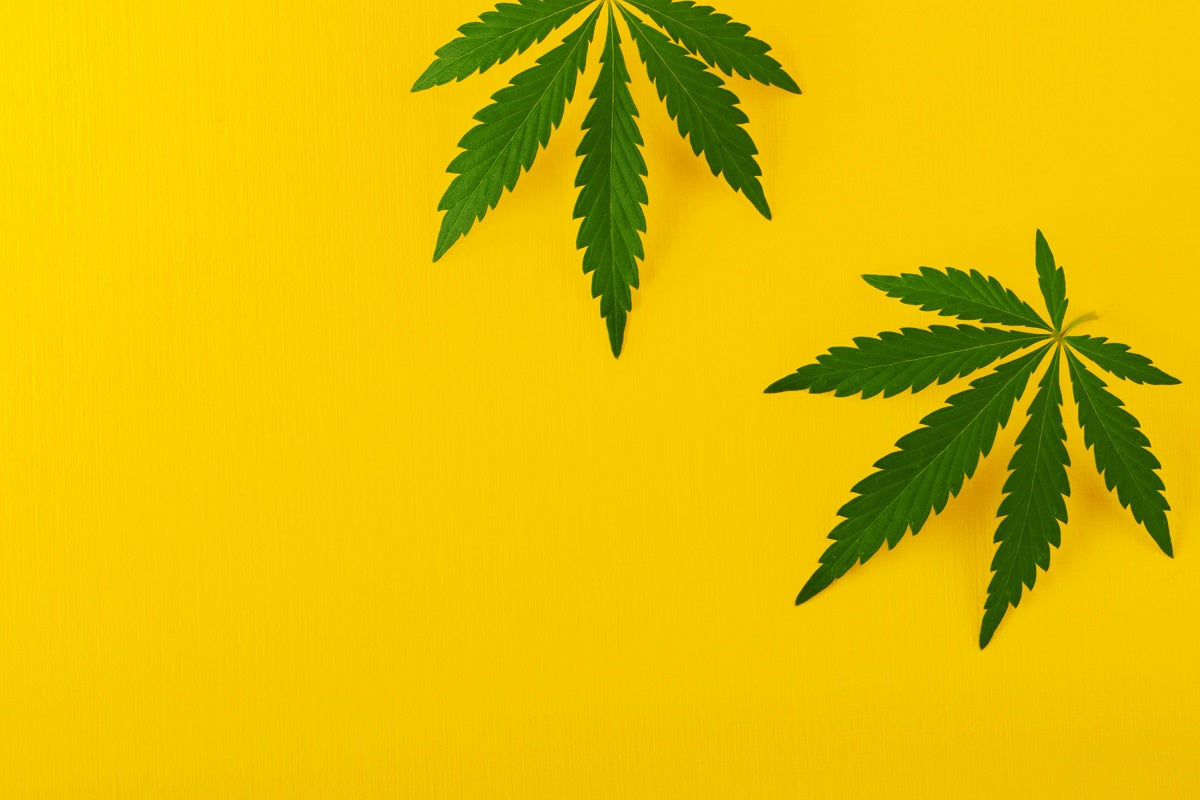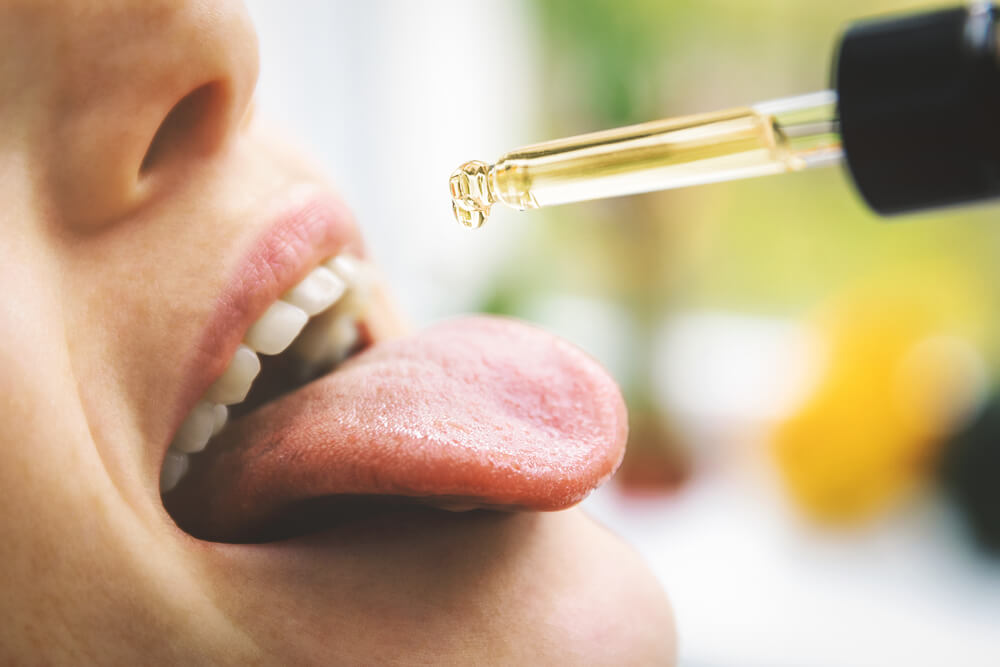CBD is something close to a miracle compound. It has many possible benefits for a wide variety of ailments such as anxiety, chronic pain, insomnia, epilepsy, and many more. But CBD doesn't help all of these issues on its own. If it wasn't for one crucial part of our body, CBD would not affect us at all. And that crucial part is called the endocannabinoid system - ECS for short.
What is the Endocannabinoid System (ECS)?
The endogenous cannabinoid system (ECS) is a complex cell-signaling system. As of now, there is still more to understand. What we do know is that it can regulate certain things in our bodies. The endocannabinoid system has three components: Cannabinoid receptors, enzymes, and endocannabinoids.
People tend to only associate this system with the use of cannabis or other compounds associated with cannabis. However, this system remains active in your body regardless of whether you use cannabis products or not.
Read our similar blog on: What Is CBD?
What is the role of the Endocannabinoid System?
The role of the ECS is to regulate different things within our body. So far we understand that it is responsible for regulating a wide range of bodily functions such as:
When was the ECS Discovered?
The ECS is a relatively new system compared to how long ago all the other systems in the body had been discovered. Cannabis has been around for centuries and some effects have been well known for some time now. However, it was only in the 1990s that researchers discovered the main system that cannabis has an effect of.
Although it is now referred to as an entire system it was first established by finding the two cannabinoid receptors that make up the endocannabinoid system. Dr Lumir Hanus received the credit for finding the entire system in 1992.
Endocannabinoid receptors
The two most important parts of the ECS are the CB1 and CB2 receptors. Without these, there would be no endocannabinoid system at all. And CBD or other cannabis compounds would not affect our bodies. Endocannabinoids bind to the endocannabinoid receptors. They then inform them that action needs to be carried out within the body.
CB1 Receptors
The CB1 cannabinoid receptor is in the central nervous system (CNS). The CNS consists of the brain and spinal cord. CB1 cannabinoid receptors are responsible for targeting pain, appetite, memory, and concentration among many other things. THC is more likely to bind with these cannabinoid receptors as it is known as a psychoactive or 'mind-altering compound.
CB2 Receptors
CB2 receptors can be found in the peripheral system. This includes elements such as immune cells etc. They are also found in the brain but are not as densely situated there as CB1 are.
How does CBD help the endocannabinoid system?
THC is a well-known cannabinoid that binds to the receptors in the ECS. The other major cannabinoid found in cannabis is cannabidiol, also referred to as CBD.
Researchers are not 100% sure how CBD interacts with the ECS, but they have some very strong theories. What they do know is CBD does not bind to CB1 or CB2 receptors the same way that THC does.
Instead of binding to the cannabinoid receptors, researchers have stated that it helps the ECS by preventing endocannabinoids from being broken down. When they are not being broken down it allows them to have a greater effect on your body. However, some researchers suggest that it binds to a cannabinoid receptor that has not been discovered yet. Maybe there is a CB3 out there waiting to be found, but for now, there is just a CB1 and CB2.
What most researchers can agree on is that CBD influences the ECS. It is believed to have a positive influence by helping to regulate certain factors in our bodies. For example, when serotonin levels are low, and you take CBD, it is believed to influence the ECS to start producing more serotonin to get it back to the required and balanced level.
Although the details of how it works are still being debated, the research suggests that CBD has possible benefits for dealing with pain, mood, and other things that the ECS regulates.
How to stimulate the endocannabinoid system
There are many ways to stimulate the ECS. As we discussed above cannabis plants and their compounds are one of the main stimulants of the ECS. These stimulants also come with a wide variety of benefits as we have mentioned. But are there other stimulants that are not cannabis-related?
Yes, there are. Cannabis is not the only thing that can stimulate the ECS. Essential fatty acids, chocolate, herbs, spices, and tea are all-natural stimulants for the ECS.
Essential Fatty Acids
A balanced and healthy amount of Omega 3 and 6 is very beneficial for the ECS. Endocannabinoids form from arachidonic acid which comes from Omega 6. Meaning that fatty acids are essential to the production of endocannabinoids.
Omega 3 fats balance Omega 6 fats for the ECS to be able to function properly. An overload of Omega 6 can have negative effects and lead to inflammation.
Here are some of the healthiest products with the essential fatty acid amide hydrolase for the ECS;
- Hemp seeds/oil
- Flax seeds
- Chia seeds
- Walnuts
- Sardines and anchovies
- Eggs
Chocolate
Cocoa powder has similar structural features to endocannabinoids. The compounds in cocoa powder inhibit the breakdown of the endocannabinoids. And as we know from above, this allows them to produce better effects and benefits for our bodies.
Raw cocoa would obviously be the best source of cocoa. However, raw cocoa doesn't have the nice taste we would associate with chocolate. Therefore, the next best thing would be dark chocolate.
Herbs and Spices
Beta-caryophyllene is a terpene found in herbs and spices. It helps to stimulate the CB2 cannabinoid receptor and is used in the development of treatments for inflammation.
Turmeric is a spice that has multiple health benefits. Another advantage of this spice is that it is known to increase the levels of endocannabinoids.
What does the endocannabinoid system regulate?
The ECS is possibly the most important bodily system when it comes to keeping us healthy. It is responsible for regulating many factors in our body that allow us to be as healthy as possible. Here are some of the main areas the ECS is responsible for regulating:
Nervous system
Concerning the nervous system, the ECS plays a vital role in memory formation and learning. The ECS also plays a role in regulating how the brain will respond to trauma and inflammation. It is also responsible for sending pain signals within the spinal cord.
Stress and mood
The ECS has an impact on the bodies natural reactions towards stress. These natural responses include two very familiar terms; fear and anxiety. The ECS plays a role in memory formation, therefore, it is closely linked to conditions such as PTSD. Other factors that the ECS regulates includes the release of dopamine, noradrenaline, serotonin, and cortisol. Which are all closely associated with our mood and emotions.
Digestive system
Digestive systems contain many CB1 and CB2 cannabinoid receptors. This suggests that it plays a role in ensuring that our gut and digestive system perform their duty. Thus, ensuring we have a healthy body. It may help to differ harmful and beneficial molecules in the digestive system.
Appetite and metabolism
The ECS, the CB1 receptors, in particular, plays a role in appetite and metabolism. It regulates the previous two, so it ultimately leads to the regulation of body weight too. When CB1 receptors become stimulated it increases your appetite. An increased appetite makes you want to eat more food.
Obese humans (and animals) tend to have ECS dysregulation that makes the CB1 receptors hyperactive, which leads to overeating.
Read our similar blog on: The Entourage Effect
Other areas of health regulated by the ECS:
- Bone health
- Immune Health
- Inflammatory Response
- Fertility
- Skin health
- Arterial and respiratory health
- Sleep and circadian rhythm
How does THC interact with the Endocannabinoid System
The compound found in cannabis that is responsible for making you high is THC. It interacts with the ECS by binding to the endogenous cannabinoid system. It can bind to both receptors but preferably the CB1 receptors as they are mainly located in the brain.
THC has a range of effects on your body, however, some might be more preferable than others. However, THC can also have mind-altering effects that can lead to paranoia and anxiety.
Currently, studies are in progress to see if THC can be extracted differently. An extraction method that can only lead to beneficial effects.
We have a wide selection of CBD Flowers and CBD Oils to chose from here at Fortune Flavors.
Key takeaways
The endocannabinoid system is key to maintaining and regulating our body's health. Two receptors called CB1 and CB2 receptors make up the system. A wide variety of factors such as cannabinoids as well as cocoa and herbs stimulate the cannabinoid receptors.
It is responsible for regulating important bodily functions such as mood, sleep, appetite and many more.
If you liked reading this, be sure to check our other blog: The Ultimate Guide To CBD



